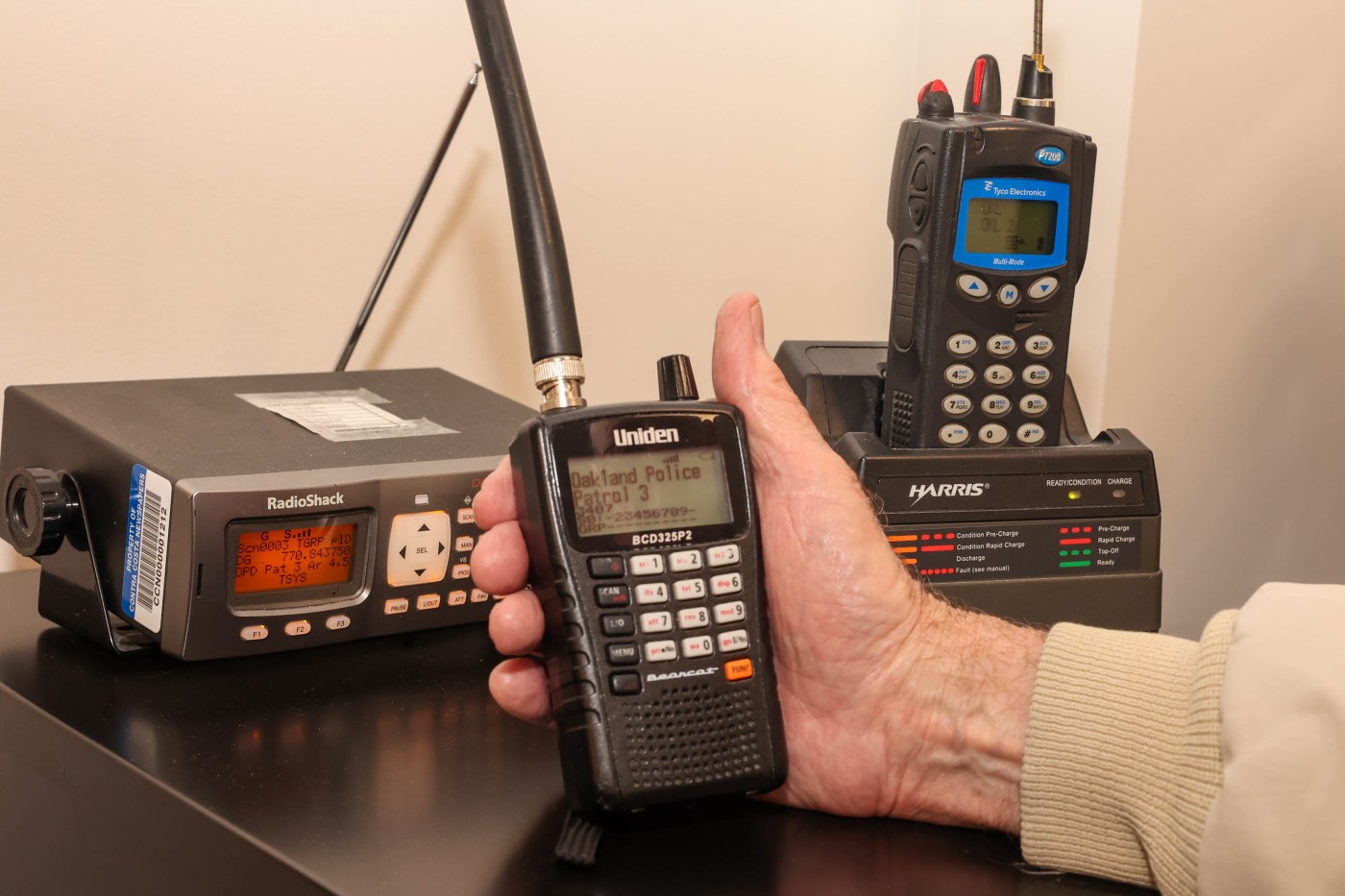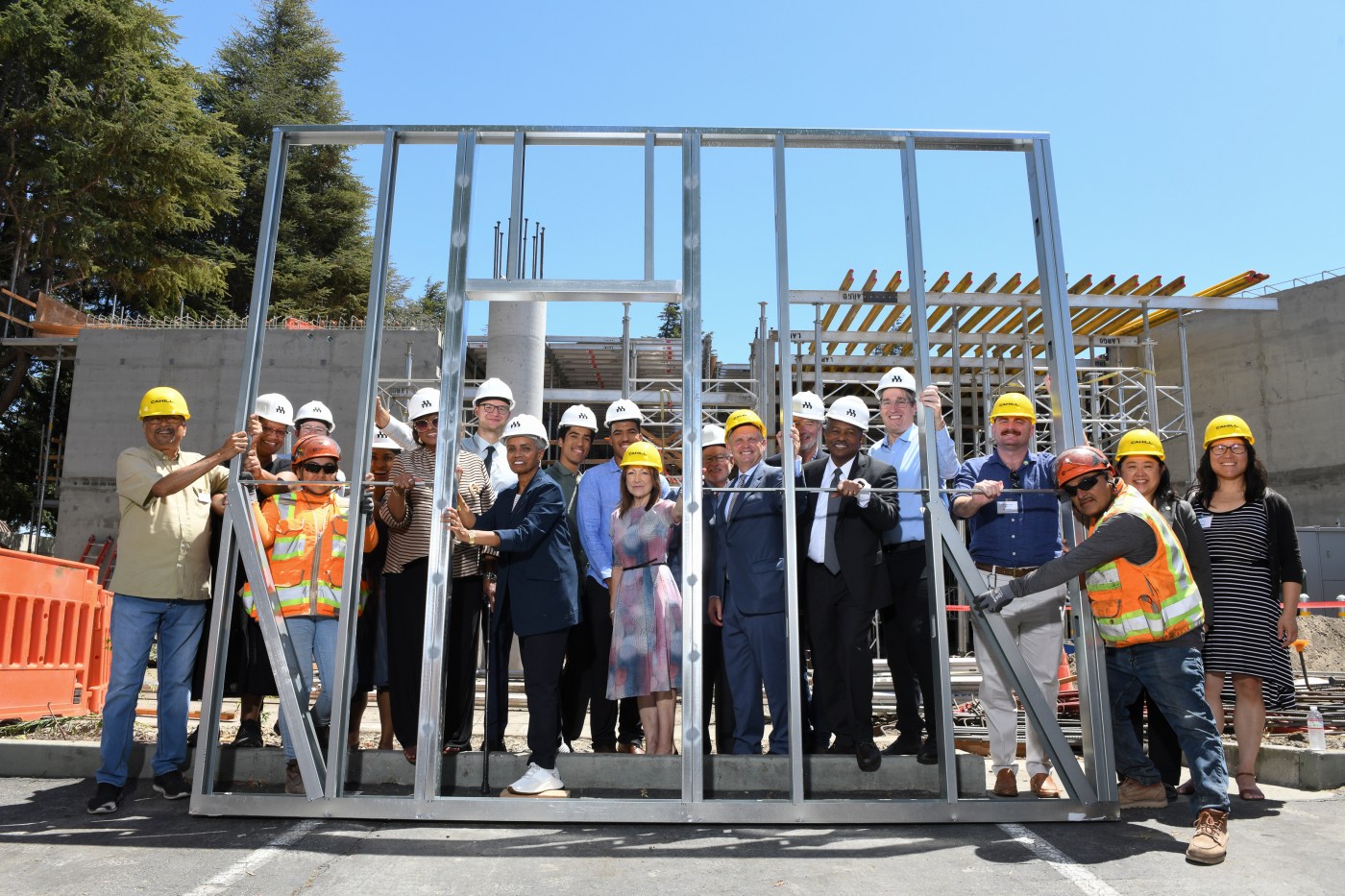OAKLAND — The Oakland Police Department plans to silence its radios this week, cutting off public access to real-time information that has been available to the public for decades.
Beginning at 4 a.m. Wednesday, all chatter between dispatchers and police will be pulled behind a curtain, according to an internal email reviewed by this news organization.
No longer will anyone outside law enforcement be able to listen in to emergencies, from a major earthquake to calls about routine traffic stops, robberies, burglaries, shootings and other crimes.
The move to “encrypt” — or make secret — calls about crimes and how officers respond to them was described by a state senator and police accountability advocates as “disturbing” and “harmful,” especially for a department still struggling to reform itself.
“I’m very upset and disappointed,” said state Sen. Josh Becker, D-Menlo Park, who has repeatedly tried to pass legislation in recent years to significantly restrict law enforcement agencies’ ability to encrypt their communications. “We need accountability and transparency. The public has had access to this for more than 100 years. And it’s worked – the transparency has worked.”
The plan came as a surprise to Oakland Mayor Barbara Lee, who was elected a week before the city’s police department began the monthslong process of preparing its radios to no longer transmit over public airwaves. In an interview Thursday, Lee promised to “look into it,” adding that “transparency is very important to me.”
Several other cities across the Bay Area and the state have similarly ended public access to their radio traffic. In doing so, they often cite a 2020 California Department of Justice directive on safeguarding private information, despite the fact that it does not require encryption.
The Oakland Police Department, however, is the only agency to make the switch while under the watch of a federal judge and court-appointed monitor. That oversight began in the wake of the Riders brutality case of the early 2000s, and it has continued through a carousel of new scandals over the last 20-plus years.
Most recently, a federal judge raised concerns about the department’s progress after command staff and an internal affairs lead investigator were accused of lying about misconduct.
Civil rights attorney John Burris, who has represented plaintiffs in the Riders settlement agreement that led to mandated reforms, called the police department’s move to encrypt “disturbing.”
“You get in more trouble when police officers can operate in more secrecy,” Burris said. “This is an approach that’s sort of going backwards.”
Open radio traffic amounts to “an important check on police misconduct,” he said. Few tools offer such an immediate avenue for the public to understand what its police officers are doing on the clock, and how they’re responding to crimes and incidents.
“We need more information, more public exposure, not less,” Burris said. “In the long run, it’ll be very harmful.”
In a statement, the Oakland Police Department’s communications team did not confirm when the encryption would begin, only that it would happen sometime in September. The department defended the move, calling it necessary “to protect the safety of both the community and our officers.”
“Encrypting our channels is a critical step in strengthening operational security, enhancing the safety of our first responders, and continuing to support public safety,” the statement said.
The department pointed to a 2020 memo by then-Attorney General Xavier Becerra that ordered law enforcement agencies to prevent public access to a highly confidential criminal database known at the California Law Enforcement Telecommunications System, or CLETS.
The directive did not require police departments to encrypt their radios. Rather, it said law enforcement agencies could safeguard that personal information while “allowing for radio traffic with the information necessary to provide public safety.”
Several other police departments have encrypted their radio traffic in recent years, including agencies in San Jose, Livermore, Walnut Creek, Mountain View and San Francisco. One of the first to do it was the Antioch Police Department, which made the switch in 2015, before multiple scandals ripped through the agency amid claims of widespread civil rights abuses and racist policing.
At least one agency didn’t stick with the decision. The Palo Alto Police Department initially encrypted its radio chatter in 2021, but reversed course a year later. The agency said officers had multiple options at their disposal to transmit sensitive information, such as using cell phones.
Oakland City Administrator Jestin Johnson said the city aimed to “maintain transparency and accountability” by being “committed” to releasing recordings of radio traffic when sought by the community. He said his office “will be helping prioritize requests from the news media,” to ensure journalists receive a timely response.
The city has historically struggled to fulfill records requests filed through the California Public Record Act. Multiple lawsuits were filed in 2020 that accused the city of being slow in releasing records, and thousands of requests — mostly to the police department — have languished in an online portal. In spring 2021, an Alameda County judge ordered the city improve its response rate, according to The Oaklandside and Courthouse News Services.
Jim Chanin, another key attorney for plaintiffs in the Oakland Riders case, voiced concern about the move. He called it another blow to police transparency, in a state where records on police misconduct are routinely shielded from public view.
“The idea of further secrecy in California, in particular, is troubling to me,” Chanin said. “California is already so restrictive to begin with.”
Ginny LaRoe, advocacy director for the First Amendment Coalition, agreed. She called open radio traffic “incredibly important” for journalists and the public to get real-time information during mass shootings and natural disasters. Such communications also offer vital details when people die or are injured during interactions with police officers — allowing journalists to fact-check statements made by department leaders in their ensuing news releases.
“The public has benefitted for decades from the ability of reporters and photographers to track volatile, fast-moving situations,” LaRoe said. “There are other ways for agencies to protect private and sensitive information, while maintaining some transparency.”
Jakob Rodgers is a senior breaking news reporter. Call, text or send him an encrypted message via Signal at 510-390-2351, or email him at [email protected].





